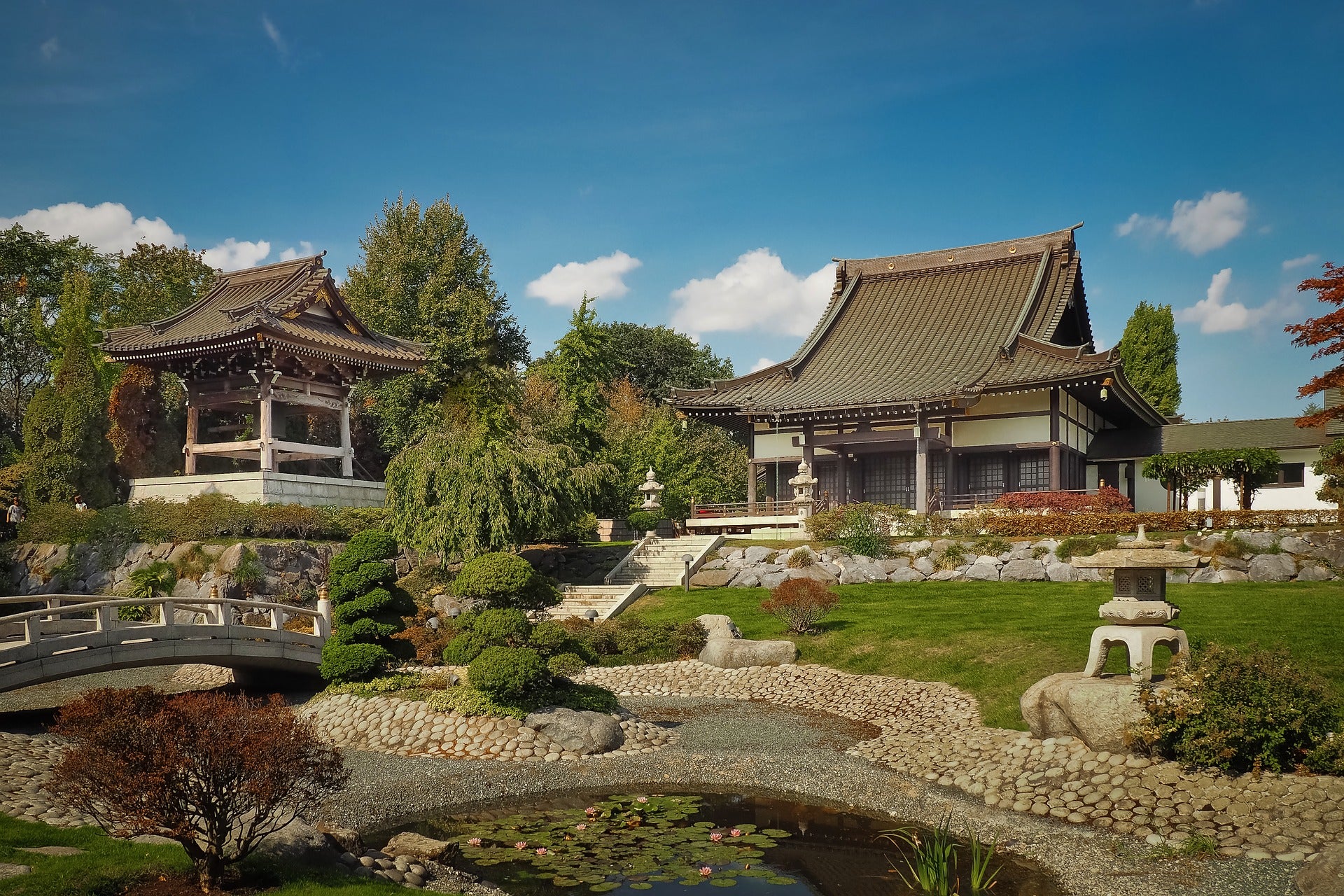Article: What should we remember about Japanese meditation and the Zen school?

What should we remember about Japanese meditation and the Zen school?
Japanese meditation is known worldwide for its benefits to spiritual, physical and mental health.
Its roots date back to the origins of Zen Buddhism, a religion that offers a path to enlightenment through meditation. Studies show that practicing Zen meditation helps cope with anxiety and stress, and has health benefits. In a fast-paced country like Japan, meditation is a great way to slow down and gain peace of mind. Zen meditation isn't just for the Japanese. Today, visitors to Japan can partake in the centuries-old tradition of Zen at Buddhist retreats and temples across the country.
History of Japanese Buddhism
Buddhism arrived in Japan in the 6th century via China and Korea along the Silk Road. Shinto, a faith indigenous to Japan, predates the arrival of Buddhism and is said to have evolved from ancient religions that worship nature. Buddhism helped shape and evolve Shinto, although most Japanese would be hard-pressed to call themselves followers of either religion and visit both Buddhist temples and Shinto shrines. Zen is arguably the best-known school of Buddhism in Japan, and some aspects of Japanese culture are either heavily influenced by Zen or are direct expressions of it. Japanese gardens, tea ceremonies, and even martial arts can trace their roots to Zen.
Zen Buddhism is the practice of meditation to achieve self-realization and enlightenment. Those who practice Zen do not rely on powerful deities, but are guided by their teacher throughout their spiritual journey.
A quiet place is the best place for meditation
How to meditate?
Meditation has numerous health benefits. Studies show it helps cope with depression and anxiety, reduce stress, improve sleep, and, in some cases, treat chronic pain. If you're interested in learning more about Zen Buddhism and how to meditate, zazen, a famous Japanese meditation technique, is a great place to start. It focuses on deep thought and contemplation and serves as the foundation for Zen meditation.
The technique of zazen involves sitting in a quiet, tidy place. Sitting on your knees or in the lotus (or half-lotus) position, you straighten your spine, tuck your chin, and extend your neck as if reaching for the ceiling. When practicing zazen, let your breath flow gently and naturally without trying to control it. When thoughts arise, let them come and go without judgment, without chasing them, or trying to escape them.
Experience Japanese meditation
In Japan, people often practice sesshin, a group meditation that takes place in temples or centers. If you're looking for a truly Zen experience, look no further. Visitors from all over the world travel to Japan to study meditation at Buddhist temples. During a typical zazen session, you'll learn the basics of meditation and how to integrate Zen into your daily life. You'll then be guided through the practice of zazen in the tranquility of a temple. Classes are usually followed by a tour of the temple grounds or the opportunity to participate in other Zen practices.
Kyoto, Nara, and Kamakura are famous for their Zen temples, many of which offer meditation classes. Lesser-known areas like Sendai and Otsuki also offer these classes. Zazen classes usually require a reservation, and English-language sessions are available in many locations across Japan (although this certainly varies from temple to temple). Some locations offer daily practice, while others only have one class per week, so it's best to do some research and plan before you go.
Almost all Zen temples have gardens that you can explore before or after your session to help you meditate and focus. Zen gardens are designed to aid meditation.
Zen gardens
In the 6th century, Buddhist monks created Zen gardens to help calm the mind and promote meditation. Zen gardens, or Japanese rock gardens, are typically composed of gravel, sand, moss, clipped trees and bushes, and the intentional and extremely careful placement of rocks and stones. To create a Zen garden, sand and gravel are carefully raked into spirals or ripples, usually to represent water, and various stones and rocks are used to symbolize elements such as trees or fire. The smooth pebbles used have been worn by nature rather than by human hands. Zen gardens mimic the essence of nature rather than its actual use or appearance. The result is a soothing and tranquil place that encourages introspection and meditation.
Zen gardens are often small and designed to be viewed from a single perspective outside of the garden itself. Among the most famous Zen gardens in Japan are Komyoji in Kamakura and Ryoanji in Kyoto. A UNESCO World Heritage Site, the Ryoanji gardens were originally owned by a wealthy aristocrat before being converted into a Zen temple in 1450. The origins of the famous gardens, however, as well as their true meaning, remain a mystery.
Temple activities also include calligraphy and tea ceremonies
In addition to meditation classes and visits to Zen gardens, other experiences are available to curious visitors. Throughout the country, you can participate in tea ceremonies, take Shakyo calligraphy classes, or spend a night at a Shukubo temple. In Japan, tea culture is synonymous with Zen Buddhism. It was created in a Zen environment, and the tea ceremony has been greatly influenced by Zen Buddhism. Some temples offer a tea ceremony class, during which visitors learn the history and philosophy of the tradition before watching a tea ceremony performed by the instructor, and then preparing and serving their own tea. Shakyo calligraphy is the art of hand-drawing Buddhist sutras. While exquisitely beautiful, this method requires more than just artistry. Each stroke demands your rapt attention, making Shakyo a practice of mindfulness and discipline. Many temples offer shakyo classes for those interested.
Finally, some Zen temples have a guesthouse area called Shukubo, where you can actually spend the night in a temple. Historically, only monks and pilgrims were allowed to do this, but thanks to the growing interest in Zen Buddhism, more and more places are opening their doors to foreign guests for the night.

